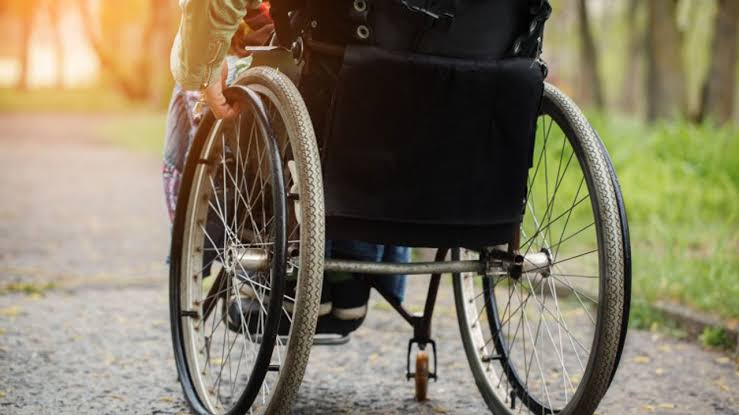People with disabilities lament stigmatisation
People Living with Disabilities in Bauchi State have lamented the stigmatisation and maltreatment they encounter in their homes. They said this has often led them to begging for alms and exposing them to being sexually abused. The representative of a non-governmental organisation, Heal Initiative Development, Aisha Adamu, stated this in a goodwill message during a […]

People Living with Disabilities in Bauchi State have lamented the stigmatisation and maltreatment they encounter in their homes.
They said this has often led them to begging for alms and exposing them to being sexually abused.
The representative of a non-governmental organisation, Heal Initiative Development, Aisha Adamu, stated this in a goodwill message during a one day programme to mark 16 days of activism organised by the Development Exchange Centre, Bauchi.
Aisha alleged that, “Most of the challenges we often face sometimes first come from our parents and then the community. For example, when some parents give birth to a disabled child, they begin to maltreat them as if they are not human. Their needs are not being catered for and they are treated with disdain.
“It is from there that many of us start facing this stigmatisation in our hearts and low self-esteem that since we are not being catered for even by our immediate family, then, we are not useful in society. When a child faces such stigmatisation from home, he’s not sent to school; his needs are not provided for and because he is humiliated and despised at home, he ends up begging on the streets especially the female child.’’
She added that for the females, they are often targeted by miscreants who abuse them sexually.
“ So, we call on the government to prosecute perpetrators of sexual and gender-based violence to serve as a deterrent to others,” she stated.
The Coordinator, National Human Rights Commission, Bauchi State office, Yachi Dala, lamented the rising cases of violence in the home, pointing out that children end up being affected negatively.
“We have rising cases of domestic violence. Most of the cases we have are spouses beating their spouses; apart from physical violence, there is also psychological, emotional and economic violence where a spouse is deprived of going out to work or intentionally depriving them of upkeep of the family. The children are most affected because of their vulnerability.
“When there is an issue between a father and a mother, the children may not be directly involved but it will always affect them. Denial of access to children is also another form of violence.’’
Dala called on the government to be proactive. “It’s a call to action and it’s not just the government but every stakeholder.’’
The Head of Programmes, DEC, Samuel Yalmisun, said the programme was organised to create awareness on the dangers of gender-based violence which mostly affect women and girls.
